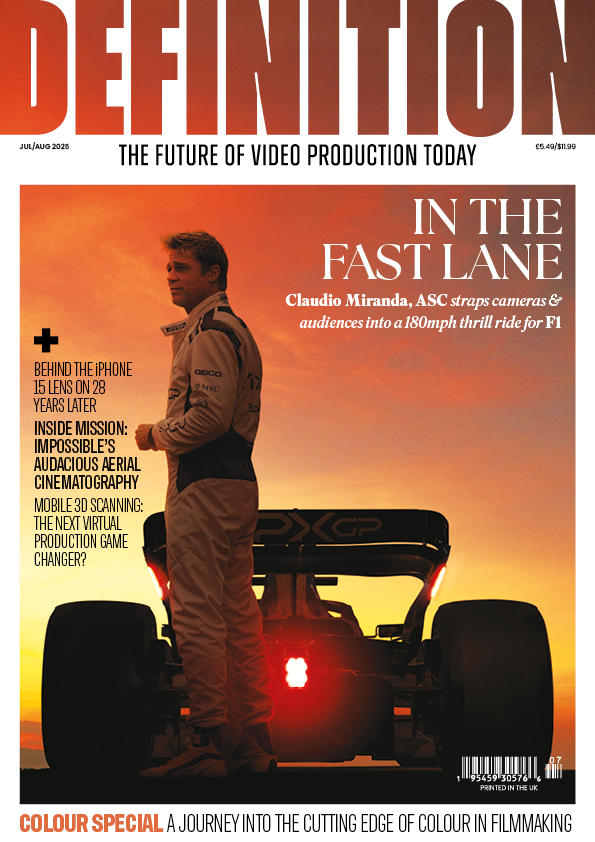
The Def Guide to: Film Festival Success
Posted on Sep 15, 2023 by Katie Kasperson
Kicking off a new regular feature, our round table of programming pros offer advice for applying to festivals with the best results
INTERVIEWS Katie Kasperson | FEATURED IMAGE Shravya Kag
Whether it’s your first feature or your fifteenth, submitting to a film festival can be daunting. Between perfecting your film, deciding which festivals to submit to, juggling deadlines and managing expectations, the process can become overwhelming – and may be enough to put you off applying at all.
In our inaugural Def Guide, we have demystified the submission process by going directly to festival programmers for advice. We cover key aspects of the application, like finding the best-fitting festivals, avoiding potential pitfalls and handling rejection. Filmmakers and festivalgoers – read on!
Definition: What advice would you give someone who’s submitting to a film festival?
Cara Cusumano (festival director & VP of programming, Tribeca Festival): Plan for a festival run the same way you would for every other aspect of producing your film. You should have a strategy, timeline and budget.
Peter Hall (film & TV festival programmer, SXSW): Look into the festival’s history. Learn what they’ve played in recent years, what their programme tends to look like, and be honest about whether or not you feel your film would fit alongside what they’ve played in the past. Try to find festivals that seem like the closest fit for your film and start there.
Owen Baker (marketing & communications manager, Cambridge Film Festival): A film that aligns with our festival’s ethos of promoting independent films and ensuring representation – with 50% of our screenings from female or non-binary directors – stands a good chance.
CC: Think about what you are getting out of each festival you play and how you are maximising those opportunities. Don’t submit just to submit, or to collect as many laurels as possible, but think about how your festival run will help you and your film.
OB: It may sound obvious, but ensure your film is finished before submitting. Reviewers base their judgement on the submitted version, not an implied future version. A late, but complete entry stands a far better chance than an incomplete, early submission.
Def: What do festival programmers look for in a submission?
PH: There’s no singular element that programmers look for – there’s not a skeleton key your film needs in order to get in – but generally speaking, a clear, distinct filmmaking voice goes a long way. It doesn’t matter if you’re making a movie with a multi-million-dollar budget, or one that costs less than a used car; if there’s not a unified voice, if there’s not a clear perspective powering the filmmaking, it’s unlikely to stand out.
OB: At the Cambridge Film Festival, our reviewers and programming panel are keen on a combination of technical proficiency, innovative storytelling, compelling performances and visual creativity. Films that resonate with the Cambridge audience always stand out.
CC: I love to be surprised – in any way. When you watch hundreds of films, you see a lot of the same stories, themes and techniques. When I see something I’ve genuinely never seen before, you have my attention. Sometimes that’s a performance, humour, or a visual style. It’s not one thing we look for, more that the originality itself is exciting.
Def: Are there any potential pitfalls applicants should avoid?
OB: One that’s commonly overlooked is not thoroughly reading and following the submission guidelines. Many filmmakers, excited at the prospect of festival inclusion, hastily submit their film without sufficient preparation. This can lead to potential disqualification, as the guidelines serve a critical purpose in facilitating the selection process.
PH: Don’t submit to a festival you have no chance of getting into because you don’t meet the criteria.
OB: Remember, even a masterpiece can be misplaced if it doesn’t suit the festival’s theme or objective. Submitting a brilliant action film to a documentary- focused festival won’t serve you well.
PH: Keep in mind the realities of festival scheduling. Have you made a short film that’s 37 minutes long, but submitted it to a festival that only programmes two different shorts blocks? Or a slow burn character study that’s three hours long? The longer a film is, the better it has to be, otherwise you’re running up against programmers who could fit multiple projects into your slot. You don‘t need to make a project as short as possible to increase chances, but you should keep runtime in mind.
CC: Mind your deadlines!

Def: How should filmmakers choose which festivals to apply to?
OB: The choice of festival for submission should be an informed one. Each festival has a unique focus – be it independent films, documentaries, international features, or genre-specific work. Do your research on the festival’s typical programme, reputation, opportunities for networking and its location.
CC: Look at what festivals have programmed in the past to find a good fit. Some have specific programming strands related to themes like sports, the environment or experimental work. Sometimes it’s less concrete. If there are films similar to yours that have had successful lives at festivals and beyond – and whose trajectory you would like to emulate – see who supported them early on.
OB: Consider the festival’s audience. A receptive audience aligned with your film’s target demographic can work wonders for your film.
PH: Have you made a deadpan comedy shot in black & white? Or a call-to-arms documentary about an activist subject? Find recent films in your ballpark and look up which festivals they might have played. This should give you an idea of who might be interested.
OB: Reviews from other filmmakers on submission platforms can provide valuable insights into the festival’s standing and the way that it supports contributors. Be vigilant – there can be disreputable festivals among the many excellent ones.
Def: Rejection is an inherent aspect of applying for anything. What advice would you give someone who’s had their submission rejected?
CC: We prefer to say that a film was invited or not invited. Rejected carries an implication of failure – the reality is, films are not invited for reasons outside of your control as the submitter.
PH: Programming a festival is hard and requires factoring in not just the subjective tastes of the programmers, but the objective realities of your film. There are a million reasons a film may or may not make it into the programme – sometimes it merely means it wasn’t right for the festival in that year.
OB: Rejection from a festival does not necessarily denote a lack of quality. My advice would be to try not to take it personally and remember different festivals are looking for distinct things. We have certainly passed on films that have gone on to win awards at other festivals. Keep applying, refining and creating – persistence is key.
CC: It’s important to maintain a good relationship with the festival for future work, and if a programmer has reached out personally to compliment your film even if it’s not invited – believe them! Cultivate that relationship. Often, we programme future work from creators whose first submissions we didn’t invite.
OB: Despite the competitive nature of the selection process, we are constantly inspired by the breadth and quality of films we receive – and are proud to provide a platform for innovative filmmakers from all walks of life.
This article originally appears in the September 2023 issue of Definition.













